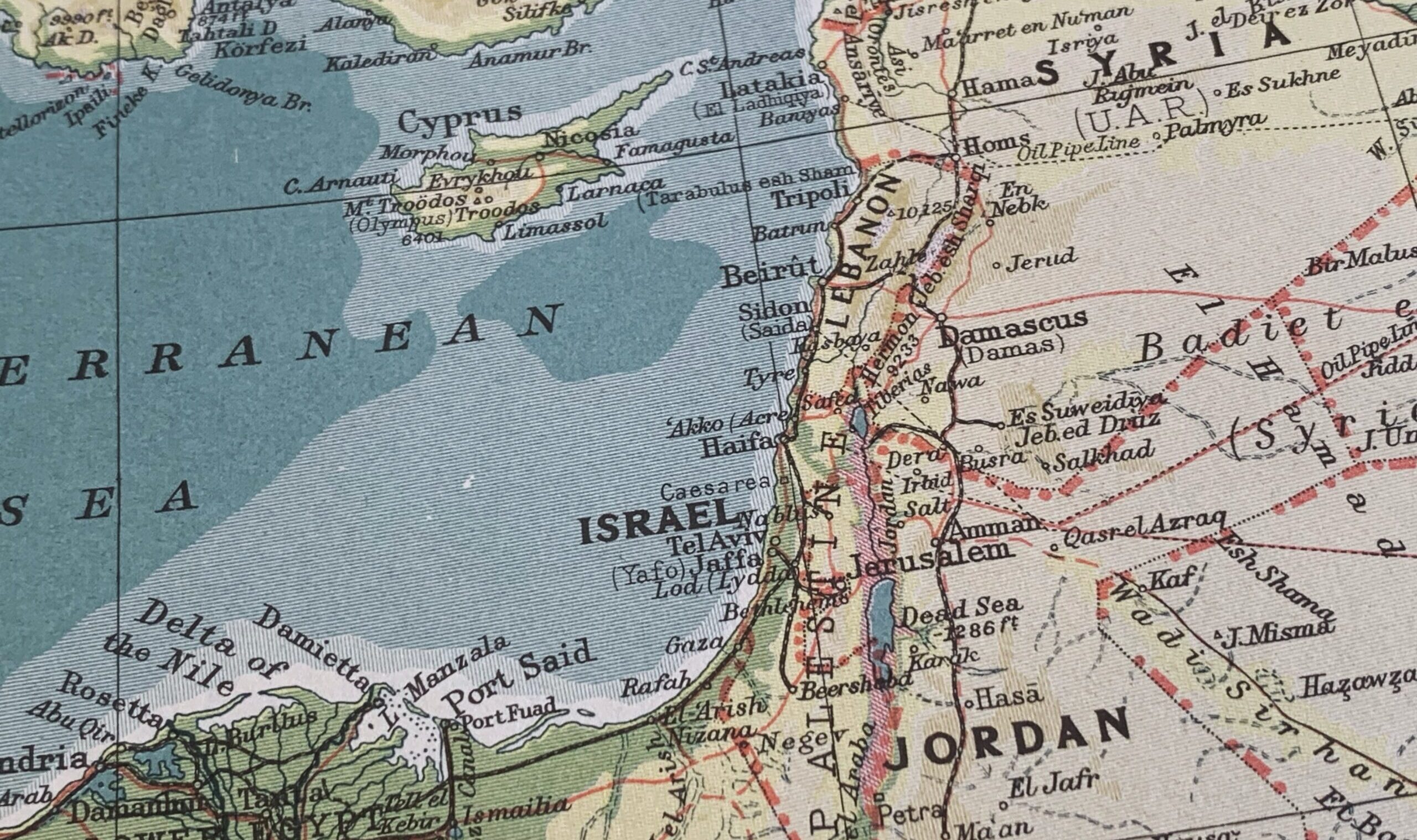Why Self-interest May Stop the Mideast Blow-Up
No party would be served by all-out war.

The Middle East has been on tenterhooks over the last two weeks. Israel’s assassinations of the senior Hezbollah commander Fuad Shukr in Beirut and the Hamas political chief Ismail Haniyeh in Tehran, which occurred less than 24 hours apart, were operational successes demonstrating the reach, lethality, and capability of Israel’s security services. Yet the killings of these two high-profile figures have generated extreme concern about the prospects of a full-blown war erupting between Israel and the United States on the one hand and Iran and its regional proxies on the other.
According to the conventional wisdom, it’s only a matter of time before Iran and Hezbollah retaliate against Israel militarily. Iran’s Supreme Leader Ayatollah Ali Khamenei has reportedly given the order to strike. Hezbollah Secretary-general Hassan Nasrallah has done the same. In Israel, people have been told to prepare for an imminent, large-scale attack by stockpiling necessities. The United States, meanwhile, has ordered more military assets to the region, including additional F-22 and F/A-18 fighter aircraft, to deter Iran and assist Israel’s defenses.
Is the Middle East on the precipice of a regional conflict? While no official or analyst can say with absolute certainty, there are cold-hearted, self-interested reasons why the major players involved would want to shy away from it.
Iran, for example, will have to think long and hard before it engages in a war with Israel. The fact that nearly two weeks have passed since Haniyeh’s assassination suggests that the Iranian government is still very much deliberating its options and is aware that a mistake could result in catastrophic blowback. There appears little doubt that Tehran will respond in some way; Haniyeh’s killing was a highly public embarrassment for the Iranian security services, coming only a few hours after the Hamas official attended the inauguration ceremony of Iran’s newly-elected President Masoud Pezeshkian. The Israelis managed to kill Haniyeh by sneaking a bomb into the exact room of the Iranian guesthouse he was staying in. Doing nothing after such a monumental security lapse isn’t an option; it would likely embolden Israel to pursue more of these operations in the future.
But going overboard isn’t an option either. The scope and duration of any retaliation will have to be specifically tailored because Tehran frankly cannot afford a war with a superior adversary right now. In April, after an Israeli strike against an Iranian consulate building in Syria, the Iranians launched approximately 300 drones and missiles toward Israel, the first direct attack from Iran of its kind. Yet that operation was highly choreographed and telegraphed well in advance, probably on purpose, to limit the damage to civilians and minimize the chances of a huge Israeli counterattack. It worked; the vast majority of the drones and missiles were shot down, the damage was insignificant and Israel’s retaliation was limited to destroying an Iranian air defense radar installation.
Iran didn’t want to spark a wider war with Israel in April. Notwithstanding Israel’s successful covert operation on Iranian soil (which wasn’t the first), it is highly unlikely that Iran wants to spark a wider war today. First, while Iran could do significant human and material damage to Israel in the event of a full-scale conflict, particularly by leveraging its proxies, Iran is still by far the inferior party in terms of conventional military power. The Iranian armed forces haven’t fought a conventional conflict in more than 40 years—and the last time it did, against Saddam Hussein’s Iraq, the result was an eight-year campaign that ended in a draw. Israel could do markedly more damage to Iran than Iran could do to Israel.
Iran also can’t assume that Israel would fight alone if things got out of hand. It’s difficult to envision the United States, still the world’s foremost military superpower, sitting out of any Iran–Israel war. For Iranian officials to assume otherwise would be a dangerous gamble on their part. The U.S., after all, was integral in creating a military coalition on the fly, which included France, the United Kingdom, Jordan and Saudi Arabia, to neutralize Iran’s attack on Israel in April. All of this will undoubtedly weigh on Khamenei’s mind. Despite his dogmatic rhetoric, the supreme leader is concerned with one thing above all else: preserving the Islamic Republic.
Hezbollah, too, has reasons for restraining its worst impulses.
For the last 10 months, Israel and Hezbollah have been firing on one another’s positions within the Israel–Lebanon border region. Tens of thousands of civilians have been displaced on both sides of the U.N.-demarcated Blue Line, turning most of the area into a de facto military zone. Israel’s operation against Shukr was notable not just because of who was targeted but where it took place—in Dahiya, the highly-populated suburb in Beirut that serves as Hezbollah’s headquarters. It was a direct violation to the unwritten rules of the game.
Although a coordinated strike against Israeli security installations in a major population center like Tel Aviv can’t be ruled out, Hezbollah has little to gain and much to lose if it starts becoming indiscriminate. This isn’t conjecture; Hezbollah has first-hand experience in how devastating an Israeli military campaign can be. In July 2006, Hezbollah launched an attack against an Israeli patrol along the Israel–Lebanon border, killing two Israeli soldiers and capturing three others. Israel’s response was ferocious, a 34-day offensive that blockaded Lebanon’s ports, killed hundreds of Hezbollah fighters and destroyed much of the country’s infrastructure. Two weeks after a ceasefire was signed, Nasrallah admitted publicly that he never would have authorized the attack on the Israeli soldiers if he knew it would lead to a war.
Granted, today’s Hezbollah is far stronger militarily than it was in 2006. The group is the strongest bloc in Lebanon’s dysfunctional political system, rules southern Lebanon as its own mini-state, and possesses so many missiles that it could overwhelm Israel’s air defense system. Yet the fundamental question still remains: Does a war with Israel at this time serve Hezbollah’s interests? Given the stiff Israeli retaliation that would ensue and the extensive harm its own support base and the country in general would suffer—Lebanon’s economy has already contracted by two-thirds since 2018 while its poverty rate has tripled over the last ten years—the answer would seem to be no.
It’s not in Israel’s national interest to embark on a war either. For one thing, the Israel Defense Forces (IDF) still have their hands full against Hamas in Gaza. Although Israeli Prime Minister Benjamin Netanyahu frequently invokes the IDF’s tactical successes, Israeli troops are still conducting raids and offensives in some of the same cities they previously withdrew from. The IDF is so low on munitions that there’s question as to whether it could execute a multi-front war even if it wanted to, something Israel hasn’t done since 1973. None of this even begins to account for the civilian casualties, infrastructure damage, and economic contraction such a war would produce.
Preventing an Israel–Iran or Israel–Hezbollah war that could engulf the entire Middle East won’t be a smooth process. It’s especially difficult when the immediate parties don’t have diplomatic relations or any direct ways of communicating redlines to each other.
But if rationality prevails over emotionalism, there are good reasons to believe the region and the roughly 50,000 U.S. troops stationed there can escape a conflagration.
The post Why Self-interest May Stop the Mideast Blow-Up appeared first on The American Conservative.


















































